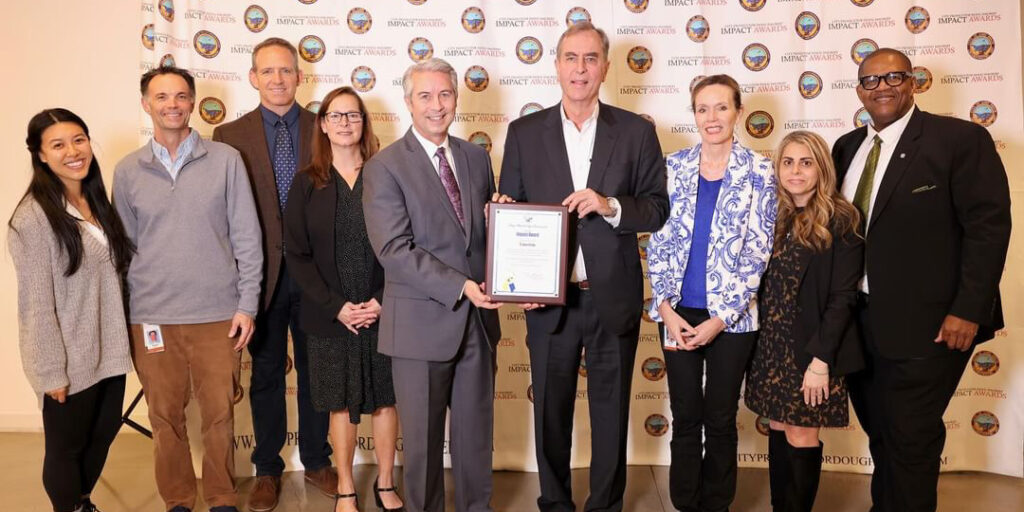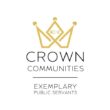2023 Crown Communities Award winner: Long Beach Calif.’s GUIDES mobile app
Police in the United States are expected to serve all citizens, including those experiencing homelessness, substance abuse and mental health disorders. Three California organizations worked together to provide vital assistance to these highly vulnerable populations through innovative technology.
The Government User Integrated Diversion Enhancement System (GUIDES) is a mobile app that was launched in January 2023. A collaboration project with the Long Beach, Calif., City Prosecutor’s Office (LBCP) and the Long Beach Police Department (LBPD) and technology firm Laserfiche, GUIDES is a 2023 American City and County Crown Communities award winner.
Laserfiche software powers this online information system, and the setup allows police and prosecutors in the LBPD and LBCP to share data and access case information. It also enables information-sharing for services available for citizens afflicted with mental illness, homelessness and substance abuse.
Through GUIDES, police can quickly get information on an individual’s background that expands the officer’s ability to serve that person as well as citizens in the neighborhood. As explained in the Crown Communities awards application: “If the individual has a case manager as part of the city’s Law Enforcement Assisted Diversion (LEAD) program, that information is made readily available to an officer looking to assist the individual, saving costs and time. Importantly, officers can now re-connect that person to his/her case manager as an alternative to arrest or incarceration. Additionally, officers can quickly determine if that individual is on probation, has a stay-away order, or has active arrest warrants.” Through the data available on GUIDES, officers can make better-informed decisions. The system also provides police with case disposition options not previously available.
GUIDES is a game-changer, says Long Beach City Prosecutor Doug Haubert. “Across the country, police can access critical criminal justice data, but not from a remote device like an iPhone. GUIDES allows officers in the field to get access to data while they are in the field handling calls. That’s one of the ways GUIDES is revolutionary. We also include data (on GUIDES) that is focused on assisting individuals suffering from homelessness, mental disease or substance abuse.” The GUIDES app can also be downloaded to Android phones.
At-risk populations are growing. Long Beach city officials declared an “Emergency on Homelessness” after a 62 percent increase in the number of homeless persons was measured from 2020-2022. Haubert notes that over the past decade, police officers have been increasingly assigned the task of assisting the unhoused. “For example, 10 years ago I would estimate only 5 percent of the misdemeanor arrests and citations involved transient individuals,” he says. “Now, it is more like 40 percent. The homeless population in California has exploded, but we have not done a great job of giving officers the tools they need to really address the problem. GUIDES is the first significant effort I have seen where we are using technology to connect police (who address the problem first-hand) with social service providers who are specially trained to respond to homelessness, mental illness and substance abuse.”
Haubert says implementing GUIDES across the Long Beach police force continues. “More LBPD officers are downloading GUIDES now and in the future. We started with very basic training for patrol officers. We are about to embark on a new round of training, not just to train those who missed the first round, but to include other details that are likely to need GUIDES.”
The GUIDES system, according to Haubert, has the potential to help solve Long Beach police staffing and resource shortages. “At the same time we developed GUIDES, there has been a crisis in public safety staffing. Locally, our law enforcement partners are operating at a level 20 percent below normal. Technology like GUIDES puts the power to do more things in the hands of every police officer and can serve as a force multiplier every time it is used.”
Yes, systems like GUIDES can help agencies boost efficiencies, says Noel Loughrin, senior strategic solutions manager: government and education, at Laserfiche. “We strive to create solutions that help users streamline their processes and create new efficiencies in their workplace. The ultimate goal is to reduce time spent on tasks like filing or retrieving information, and manually inputting or validating data, so that people can better focus on the work that matters. Empowering employees to reclaim time can be especially impactful for government agencies, which are faced with staffing challenges due to a number of factors, including competition with the private sector as well the ‘silver tsunami.’”
Loughrin notes that the GUIDES app facilitates information sharing. “If at-risk individuals are already working with case managers, police officers can see that information within the GUIDES app and reconnect people more easily. The goal is to empower officers with information and strengthen collaboration between officers—who are interacting with community members on a daily basis—and the many other organizations that provide services, so that individuals can be connected to the appropriate resources.”
Laserfiche is a software-as-a-service (SaaS) provider of enterprise content management (ECM) and business process automation.
If other cities are considering tackling a GUIDES-type technology project, Haubert urges that administrators take the long view. “A complex data-sharing project like this requires buy-in at the highest levels. That means there needs to be an organizational commitment to follow through even when there are personnel changes. We see this as a long-term investment and that requires a real commitment, so if the commitment is not there the project will struggle.”
Loughrin urges city officials contemplating a similar project to make sure target results are quantifiable. “The most successful projects start with a clear vision and understanding of the problem that needs to be solved. Technology adoption alone should not be considered the end result—cities should be able to clearly communicate measurable goals and objectives; this includes the project’s impact on city employees and residents. Innovation is about outcomes. You should be able to answer the question: How is your project having a positive impact on people’s lives?”
Haubert speaks highly of GUIDES co-developer, Laserfiche. “We could not have asked for a better technology partner than Laserfiche. Although Laserfiche is a global software company, they have a large corporate office in Long Beach and many of their programmers and engineers live in our city. They can see firsthand the problems faced by law enforcement and the need for a portal solution. We received a level of personal service that far exceeded all expectations. They bought into the vision for GUIDES and saw the need for and the utility of the app from the very first day. They brought real passion and dedication to the project, and I don’t think we could have gotten that from any other company.”
Loughrin concurs: “With our global headquarters in Long Beach and many of our employees based in the city, Laserfiche is especially connected to the local community. Our team members live here, attend community events, volunteer with local organizations and use public services, so we do have a deep understanding of the city. Our team also spent a lot of time with Doug Haubert’s team to understand what they needed from the GUIDES app, and we are grateful to Doug for providing a clear vision for the project. Our employees are proud to witness firsthand the positive impact of Laserfiche solutions on the city’s digital transformation initiatives and public safety efforts.”
Future development of GUIDES
Haubert says plans are afoot to consider expanding GUIDES’ geographic footprint. “Currently, the Long Beach Police Department has exclusive use of GUIDES. Los Angeles County has about 50 law enforcement agencies, and LBPD is probably the third largest. We have shown the app to other agencies, and there is interest in using GUIDES or developing a GUIDES-like app for those agencies so all the departments can communicate and access the same or similar information.”
He says GUIDES will evolve and expand based on its uses by law enforcement. “They (police) are the end user, and we are committed to making sure GUIDES has the tools most needed by them. As we get suggestions, we look for the best ways to add features and additional data into GUIDES.”
Loughrin notes that GUIDES was built with the goal of helping individuals who are experiencing homelessness, have mental health or substance-use issues—or in some cases, a combination of the three. She salutes Long Beach City Prosecutor Doug Haubert for spearheading the GUIDES app in Long Beach. She senses other jurisdictions could use this kind of technology: “We can see the potential for similar Laserfiche-powered apps to help other communities and at-risk populations such as seniors or people with disabilities that may need access to services.”
Michael Keating is senior editor for American City & County. Contact him at [email protected].
Photo caption: At a recent ceremony, the Long Beach City Prosecutor’s Office presented Laserfiche with an IMPACT Award, recognizing individuals and groups that have had a positive impact on the city of Long Beach. City Prosecutor Doug Haubert (near center, wearing tie) is presenting the award plaque to Laserfiche Chairman Chris Wacker. Byron Bolton, legal technologist at the Long Beach City Prosecutor’s Office, is at the far right, wearing eyeglasses.

















